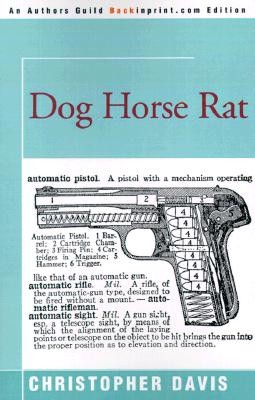
- We will send in 10–14 business days.
- Author: Christopher Davis
- Publisher: iUniverse
- ISBN-10: 0595091989
- ISBN-13: 9780595091980
- Format: 13.9 x 21.5 x 1.6 cm, minkšti viršeliai
- Language: English
- SAVE -10% with code: EXTRA
Reviews
Description
His daughter dead by his own folly, Shakespeare's King Lear carries her corpse and cries, "Why should a dog, a horse, a rat have life / And thou no breath at all?"
The novel addresses Lear's question.
Set in the early 1970s in a poor upstate New York county—a world of mobile homes, teenage marriages, unemployment, and the vacation "camps" of the well-off—this novel is about Royal West, 22, and his older brother Van, an angry and disturbed Vietnam vet. Surprised in the midst of a burglary of the summer home of a professor from Connecticut, Van, with Royal at his side, kills the professor's son. Told from Royal's point of view, it is the story of criminals who cannot allow themselves to get away with their crime. A Dostoyevskian tale of crime, punishment and ethical nihilism, it is also the story of the rebirth of a conscience and a will—of responsibility.
"...a moving study of post-vietnam voices and the spell of randomness and acceptable violence under which we've lately fallen. In all of his books Mr. Davis is a master of the quietly engineered sentence. His prose is a form of plainsong that disguises the sophistication of his method but never the breadth of his understanding and compassion."
-American Academy & Institute of Arts & Letters, May 1991
- Author: Christopher Davis
- Publisher: iUniverse
- ISBN-10: 0595091989
- ISBN-13: 9780595091980
- Format: 13.9 x 21.5 x 1.6 cm, minkšti viršeliai
- Language: English English
His daughter dead by his own folly, Shakespeare's King Lear carries her corpse and cries, "Why should a dog, a horse, a rat have life / And thou no breath at all?"
The novel addresses Lear's question.
Set in the early 1970s in a poor upstate New York county—a world of mobile homes, teenage marriages, unemployment, and the vacation "camps" of the well-off—this novel is about Royal West, 22, and his older brother Van, an angry and disturbed Vietnam vet. Surprised in the midst of a burglary of the summer home of a professor from Connecticut, Van, with Royal at his side, kills the professor's son. Told from Royal's point of view, it is the story of criminals who cannot allow themselves to get away with their crime. A Dostoyevskian tale of crime, punishment and ethical nihilism, it is also the story of the rebirth of a conscience and a will—of responsibility.
"...a moving study of post-vietnam voices and the spell of randomness and acceptable violence under which we've lately fallen. In all of his books Mr. Davis is a master of the quietly engineered sentence. His prose is a form of plainsong that disguises the sophistication of his method but never the breadth of his understanding and compassion."
-American Academy & Institute of Arts & Letters, May 1991


Reviews